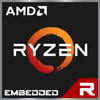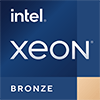
Intel Core i7-4810MQ Benchmark, test e specifiche
Ultimo aggiornamento:
Intel Core i7-4810MQ è un core processor 4. Può gestire 8 thread contemporaneamente ed è stato introdotto il Q4/2013. Si basa sul 4. Gen della serie Intel Core i7 e richiede una scheda madre con il socket PGA 946. Intel Core i7-4810MQ ottiene 856 punti con un core CPU nel benchmark Geekbench 5. Quando si utilizzano tutti i core della CPU, il risultato è 3.032 punti.

| Cognome: | Intel Core i7-4810MQ |
|---|---|
| Famiglia: | Intel Core i7 (298) |
| Gruppo CPU: | Intel Core i 4000M/4000H (38) |
| Architettura : | Haswell H |
| Segmento: | Mobile |
| Generazione: | 4 |
| Predecessore: | -- |
| Successore: | -- |
CPU Cores e frequenza di base
I 4 core della CPU del Intel Core i7-4810MQ clock con 2,80 GHz (3,80 GHz). Il numero di core della CPU e la frequenza di clock del processore sono in gran parte responsabili delle prestazioni complessive.
| CPU Cores / Threads: | 4 / 8 |
|---|---|
| Architettura principale: | normal |
| Cores: | 4x |
| Hyperthreading / SMT: | Si |
|---|---|
| Overclocking: | No |
| Frequenza: | 2,80 GHz |
| Turbo Frequenza (1 Core ): | 3,80 GHz |
| Turbo Frequenza (4 Cores): | 3,70 GHz |
Grafica interna
Con Intel HD Graphics 4600, Intel Core i7-4810MQ ha una grafica integrata. Questo ha 20 processori SM, che hanno un totale di 160 texture shader. L'iGPU non solo abilita i giochi, ma accelera anche in modo significativo la riproduzione di video, ad esempio.
| nome GPU: | Intel HD Graphics 4600 |
|---|---|
| Frequenza GPU : | 0,40 GHz |
| GPU (Turbo ): | 1,30 GHz |
| Unità di esecuzione: | 20 |
| Shader: | 160 |
| Hardware Raytracing: | No |
| Data di lancio : | Q2/2013 |
| Max. visualizzazioni: | 3 |
|---|---|
| Generation: | 7.5 |
| Direct X: | 11.1 |
| Tecnologia : | 22 nm |
| Max. GPU Memoria: | 2 GB |
| Frame Generation: | No |
Hardware codec support
I processori con grafica integrata possono elaborare e riprodurre video in modo più rapido ed efficiente. Ciò può avere un effetto positivo sulla durata della batteria dei notebook, ad esempio.
| h265 / HEVC (8 bit): | No |
|---|---|
| h265 / HEVC (10 bit): | No |
| h264: | Decodificare / Codificare |
| VP8: | No |
| VP9: | No |
| AV1: | No |
|---|---|
| AVC: | Decodificare / Codificare |
| VC-1: | Decodificare |
| JPEG: | Decodificare |
Memoria & PCIeIntel Core i7-4810MQ supporta fino a 32 GB memoria in un massimo di 2 (Dual Channel) canali di memoria. Ciò si traduce in una larghezza di banda di memoria massima di 25,6 GB/s. |
|
| Tipo di memoria : | Banda di memoria: |
|---|---|
| DDR3L-1600 | 25,6 GB/s |
| Max. Memoria: | 32 GB |
| Canali di memoria : | 2 (Dual Channel) |
| ECC: | No |
| PCIe: | 3.0 x 16 |
| PCIe Larghezza di banda: | 15,8 GB/s |
Gestione termicaCon il TDP, il produttore del processore specifica la soluzione di raffreddamento necessaria per il processore. Intel Core i7-4810MQ ha un TDP di 47 W. |
|
|---|---|
| TDP (PL1 / PBP): | 47 W |
| TDP (PL2): | -- |
| TDP up: | -- |
| TDP down: | -- |
| Tjunction max.: | -- |
Dettagli tecnici
Intel Core i7-4810MQ ha una cache grande 6,00 MB. Il processore è prodotto in %%Manufacturing%%. La produzione moderna aumenta l'efficienza del processore.
| Tecnologia : | 22 nm |
|---|---|
| Design a chip: | Monolitico |
| Presa: | PGA 946 |
| L2-Cache: | -- |
| L3-Cache: | 6,00 MB |
| AES-NI: | Si |
| Sistemi operativi: | Windows 10, Linux |
| Virtualizzazione: | VT-x, VT-x EPT, VT-d |
|---|---|
| Set di istruzioni (ISA): | x86-64 (64 bit) |
| Estensioni ISA: | SSE4.1, SSE4.2, AVX2 |
| Data di lancio : | Q4/2013 |
| Prezzo di rilascio: | -- |
| Numero di parte: | -- |
| Documenti: | Scheda tecnica |
Valuta questo processore
Risultati di benchmark

I risultati del benchmark per Intel Core i7-4810MQ sono stati attentamente controllati da noi. Pubblichiamo solo risultati di benchmark che sono stati creati da noi o che sono stati inviati da un visitatore e poi controllati da un membro del team. Tutti i risultati sono basati e rispettano le nostre linee guida di benchmark.
Geekbench 5, 64bit (Single-Core)
Geekbench 5 è un benchmark multi-piattaforma che usa in modo intensivo la memoria del sistema.Il test single-core utilizza solo un nucleo elaborativo della CPU. A tal fine, il numero di nuclei elaborativi o la capacità di hyperthreading non sono rilevanti.

|
AMD Ryzen Embedded R1606G
2C 4T @ 3,50 GHz |
||

|
Intel Core i5-8400T
6C 6T @ 3,30 GHz |
||

|
AMD Ryzen Embedded V1780B
4C 8T @ 3,60 GHz |
||
|
|
Intel Core i7-4810MQ
4C 8T @ 3,80 GHz |
||

|
Intel Xeon Silver 4116
12C 24T @ 3,00 GHz |
||

|
AMD Ryzen 5 PRO 3350GE
4C 4T @ 3,90 GHz |
||

|
AMD Ryzen 3 PRO 2200G
4C 4T @ 3,70 GHz |
||
Geekbench 5, 64bit (Multi-Core)
Geekbench 5 è un benchmark multi-piattaforma che usa in modo intensivo la memoria del sistema.Il test multi-core coinvolge tutti i nuclei elaborativi della CPU e si avvale del hyperthreading.

|
Intel Core i7-3720QM
4C 8T @ 2,60 GHz |
||

|
Intel Xeon Bronze 3204
6C 6T @ 1,90 GHz |
||

|
AMD FX-9370
8C 8T @ 4,70 GHz |
||
|
|
Intel Core i7-4810MQ
4C 8T @ 3,70 GHz |
||

|
Qualcomm Snapdragon 780G
8C 8T @ 2,40 GHz |
||

|
Intel Xeon W-2102
4C 4T @ 2,90 GHz |
||

|
Intel Core i5-4690S
4C 4T @ 3,50 GHz |
||
Geekbench 6 (Single-Core)
Geekbench 6 è un punto di riferimento per computer, notebook e smartphone moderni. Ciò che è nuovo è un utilizzo ottimizzato delle architetture CPU più recenti, ad esempio basate sul concetto big.LITTLE e combinando core CPU di diverse dimensioni. Il benchmark single-core valuta solo le prestazioni del core della CPU più veloce, il numero di core della CPU in un processore è irrilevante qui.

|
Intel Core i7-6600U
2C 4T @ 3,40 GHz |
||

|
Intel Core i7-6650U
2C 4T @ 3,40 GHz |
||

|
Intel Xeon E5-2687W v3
10C 20T @ 3,50 GHz |
||
|
|
Intel Core i7-4810MQ
4C 8T @ 3,80 GHz |
||

|
Intel Core i7-4940MX
4C 8T @ 3,90 GHz |
||

|
AMD Ryzen 3 PRO 2200G
4C 4T @ 3,70 GHz |
||

|
AMD Ryzen 3 2200G
4C 4T @ 3,70 GHz |
||
Geekbench 6 (Multi-Core)
Geekbench 6 è un punto di riferimento per computer, notebook e smartphone moderni. Ciò che è nuovo è un utilizzo ottimizzato delle architetture CPU più recenti, ad esempio basate sul concetto big.LITTLE e combinando core CPU di diverse dimensioni. Il benchmark multi-core valuta le prestazioni di tutti i core della CPU del processore. I miglioramenti del thread virtuale come AMD SMT o l'Hyper-Threading di Intel hanno un impatto positivo sul risultato del benchmark.

|
Intel Core i5-7400
4C 4T @ 3,30 GHz |
||

|
Google Tensor G2
8C 8T @ 2,85 GHz |
||

|
Intel Core i7-5700HQ
4C 8T @ 3,20 GHz |
||
|
|
Intel Core i7-4810MQ
4C 8T @ 3,70 GHz |
||

|
Samsung Exynos 2100
8C 8T @ 2,90 GHz |
||

|
Intel Core i5-8365U
4C 8T @ 2,60 GHz |
||

|
Intel Core i5-7500T
4C 4T @ 3,10 GHz |
||
Cinebench R20 (Multi-Core)
Cinebench R20 è il successore di Cinebench R15 ed è anch'esso basato su Cinema 4D. Cinema 4D è un software usato a livello mondiale per creare forme in 3D. Il test multi-core coinvolge tutti i nuclei elaborativi della CPU e si avvale del hyperthreading.

|
AMD Ryzen 5 3500U
4C 8T @ 3,00 GHz |
||

|
AMD Ryzen 3 3200G
4C 4T @ 3,80 GHz |
||

|
AMD Ryzen 3 PRO 3200G
4C 4T @ 3,80 GHz |
||
|
|
Intel Core i7-4810MQ
4C 8T @ 3,70 GHz |
||

|
Intel Core i5-4670K
4C 4T @ 3,60 GHz |
||

|
Intel Xeon E5-1620 v2
4C 8T @ 3,90 GHz |
||

|
Intel Core i3-8100
4C 4T @ 3,60 GHz |
||
iGPU - Prestazioni FP32 (GFLOPS a precisione singola)
Le prestazioni di calcolo teoriche dell'unità grafica interna del processore con precisione semplice (32 bit) in GFLOPS. GFLOPS indica quanti miliardi di operazioni in virgola mobile che l'iPPU può eseguire al secondo.

|
Intel Core i7-8750H
Intel UHD Graphics 630 @ 1,10 GHz |
||

|
Intel Core i5-10210Y
Intel UHD Graphics (Comet Lake) @ 1,05 GHz |
||

|
Intel Core i5-10310Y
Intel UHD Graphics (Comet Lake) @ 1,05 GHz |
||
|
|
Intel Core i7-4810MQ
Intel HD Graphics 4600 @ 1,30 GHz |
||

|
Intel Core i7-4910MQ
Intel HD Graphics 4600 @ 1,30 GHz |
||

|
Intel Core i7-4610M
Intel HD Graphics 4600 @ 1,30 GHz |
||

|
Intel Xeon E3-1285 v3
Intel HD Graphics P4700 @ 1,30 GHz |
||
Risultati stimati da PassMark CPU Mark
Alcune delle CPU elencate di seguito sono stati sottoposti a benchmarking da CPU-monkey. Tuttavia, la maggior parte delle CPU non sono state testate e i risultati sono stati stimati utilizzando una formula segreta di proprietà di CPU-monkey. Come tali, essi non riflettono con precisione i valori attuali di Passmark CPU Mark e non sono stati approvati da PAssMark Software Pty Ltd.

|
Intel Core i5-8265U
4C 8T @ 2,30 GHz |
||

|
AMD EPYC Embedded 3101
4C 4T @ 2,10 GHz |
||

|
Intel Processor N97
4C 4T @ 3,40 GHz |
||
|
|
Intel Core i7-4810MQ
4C 8T @ 3,70 GHz |
||

|
Intel Core i7-5700HQ
4C 8T @ 3,20 GHz |
||

|
Intel Core i5-6600
4C 4T @ 3,60 GHz |
||

|
Intel Core i5-7500
4C 4T @ 3,60 GHz |
||
Blender 2.81 (bmw27)
Blender è un software di grafica 3D gratuito per il rendering (creazione) di corpi 3D, che può anche essere strutturato e animato nel software. Il benchmark di Blender crea scene predefinite e misura i tempi richiesti per l'intera scena. Più breve è il tempo richiesto, meglio è. La scena di riferimento, abbiamo selezionato bmw27.

|
Intel Core i7-8550U
4C 8T @ 2,40 GHz |
||

|
Intel Core i5-3570K
4C 4T @ 3,80 GHz |
||

|
Intel Core i5-4590
4C 4T @ 3,50 GHz |
||
|
|
Intel Core i7-4810MQ
4C 8T @ 3,70 GHz |
||

|
AMD FX-8350
8C 8T @ 4,10 GHz |
||

|
Intel Core i5-4570
4C 4T @ 3,40 GHz |
||

|
Intel Core i7-8650U
4C 8T @ 2,60 GHz |
||
CPU-Z Benchmark 17 (Multi-Core)
Il benchmark CPU-Z misura le prestazioni di un processore misurando il tempo impiegato dal sistema per completare tutti i calcoli del benchmark. Più velocemente viene completato il benchmark, maggiore è il punteggio.

|
Intel Core i5-6600K
4C 4T @ 3,50 GHz |
||

|
Intel Core i5-4690K
4C 4T @ 3,50 GHz |
||

|
Intel Core i7-975
4C 8T @ 3,33 GHz |
||
|
|
Intel Core i7-4810MQ
4C 8T @ 2,80 GHz |
||

|
AMD Ryzen 3 2200G
4C 4T @ 3,50 GHz |
||

|
AMD Ryzen 3 1300X
4C 4T @ 3,40 GHz |
||

|
Intel Core i5-6600
4C 4T @ 3,30 GHz |
||
Cinebench R15 (Single-Core)
Cinebench R15 è il successore di Cinebench 11.5 ed è anch'esso basato su Cinema 4D. Cinema 4D è un software usato a livello mondiale per creare forme in 3D. Il test single-core utilizza solo un nucleo elaborativo della CPU. A tal fine, il numero di nuclei elaborativi o la capacità di hyperthreading non sono rilevanti.

|
Intel Core i5-4590
4C 4T @ 3,70 GHz |
||

|
Intel Core i5-4590S
4C 4T @ 3,70 GHz |
||

|
Intel Xeon E3-1230 v3
4C 8T @ 3,70 GHz |
||
|
|
Intel Core i7-4810MQ
4C 8T @ 3,80 GHz |
||

|
Intel Pentium Gold G6400T
2C 4T @ 3,40 GHz |
||

|
Intel Core i5-7300HQ
4C 4T @ 3,50 GHz |
||

|
Intel Core i3-1000NG4
4C 8T @ 3,20 GHz |
||
Cinebench R15 (Multi-Core)
Cinebench R15 è il successore di Cinebench 11.5 ed è anch'esso basato su Cinema 4D. Cinema 4D è un software usato a livello mondiale per creare forme in 3D. Il test multi-core coinvolge tutti i nuclei elaborativi della CPU e si avvale del hyperthreading.

|
Intel Core i7-4710MQ
4C 8T @ 2,50 GHz |
||

|
Intel Core i7-4710HQ
4C 8T @ 2,50 GHz |
||

|
Intel Xeon E-2224
4C 4T @ 3,70 GHz |
||
|
|
Intel Core i7-4810MQ
4C 8T @ 3,70 GHz |
||

|
Intel Xeon E5-2608L v3
6C 12T @ 2,00 GHz |
||

|
Intel Core i7-4800MQ
4C 8T @ 3,70 GHz |
||

|
Intel Core i7-4770HQ
4C 8T @ 2,20 GHz |
||
Benchmarks

Geekbench 5 (SC)
2.488 inserimenti
2.488 inserimenti

Geekbench 5 (MC)
2.461 inserimenti
2.461 inserimenti

Geekbench 6 (SC)
1.755 inserimenti
1.755 inserimenti

Geekbench 6 (MC)
1.703 inserimenti
1.703 inserimenti

Cinebench R20 (MC)
604 inserimenti
604 inserimenti

FP32 SP (iGPU)
2.026 inserimenti
2.026 inserimenti

PassMark CPU-Mark
2.392 inserimenti
2.392 inserimenti

Blender 2.81 (bmw27)
190 inserimenti
190 inserimenti

CPU-Z Benchmark 17 (MC)
733 inserimenti
733 inserimenti

Cinebench R15 (SC)
1.106 inserimenti
1.106 inserimenti

Cinebench R15 (MC)
1.101 inserimenti
1.101 inserimenti

Geekbench 3 (SC)
942 inserimenti
942 inserimenti

Geekbench 3 (MC)
938 inserimenti
938 inserimenti

Cinebench R11.5 (SC)
825 inserimenti
825 inserimenti

Cinebench R11.5 (MC)
836 inserimenti
836 inserimenti

Cinebench R11.5 iGPU
383 inserimenti
383 inserimenti
Confronti più popolari
Torna all'indice




